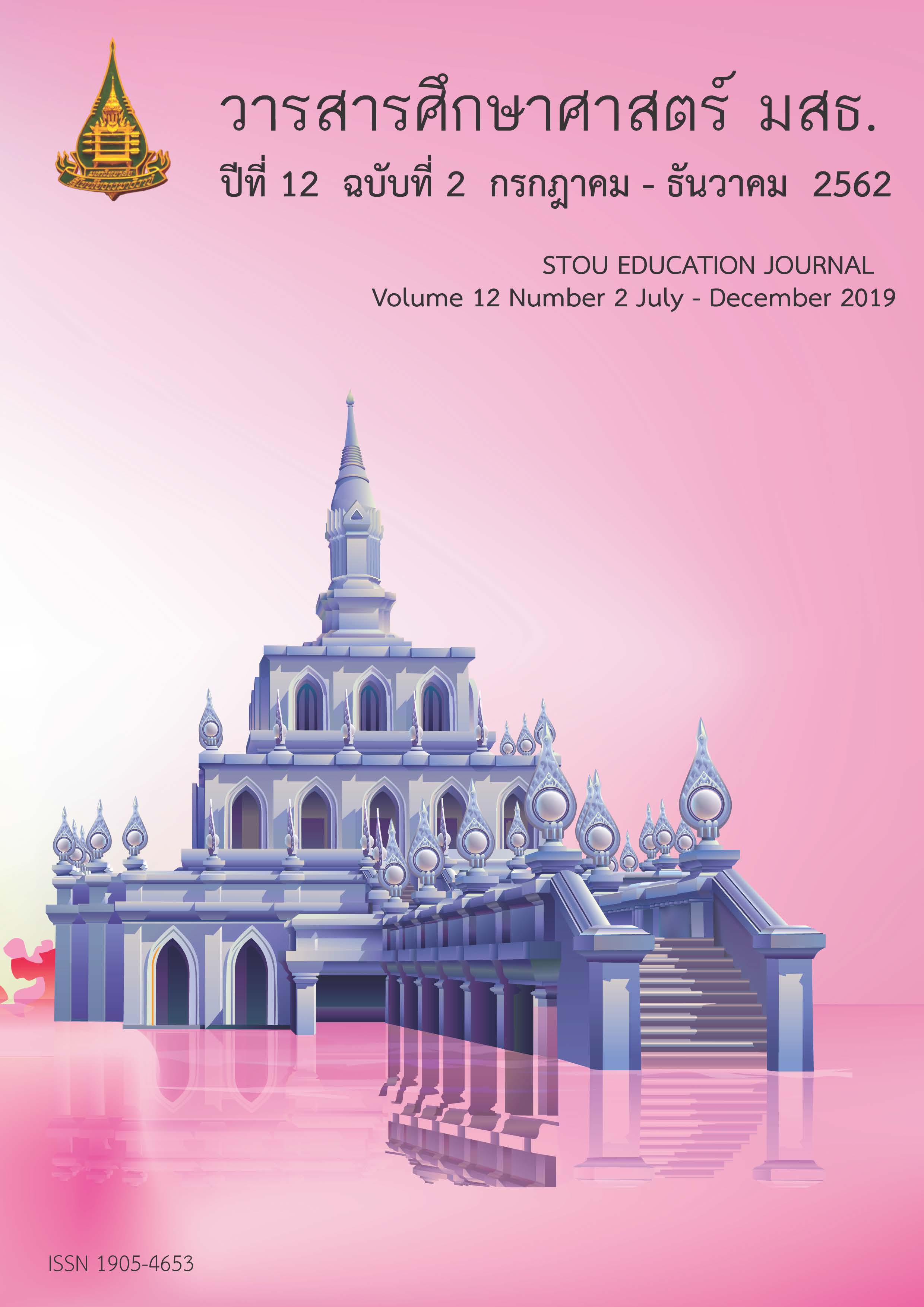Management of Community Learning Resources Based on Philosophy of Sufficiency Economy for Use in Sustainable Learning Management in Schools, Bang Phli District, Samut Prakan Province
Main Article Content
Abstract
The objectives of this research were to 1) study learning resources that are conducive to educational management in Bang Phli District, Samut Prakan province; 2) study state and problems of the community learning resources; and 3) develop guidelines for management of community learning resources based on philosophy of sufficiency economy for use in sustainable learning management in schools in Bang Phli District, Samut Prakan Province. The key informants consisted of 23 local wisdom experts, and 115 local administrators, school administrators, teachers, supervisors, community development officials, community leaders, and other related persons. The research tools included an interview form, and guidelines for focus group discussion. The data were analyzed using content analysis. The results revealed that 1) most of the learning resources in Bang Phli district were local wisdom experts, and most of them were female with secondary education. Most of them lived in Bang Chalong sub-district. Most of the local wisdom knowledge was on Food Economics. The local wisdom experts gained and accumulated their knowledge from self -learning, their ancestors and teachers; 2) The schools with multiple subject areas used the local learning resources by inviting local wisdom experts to teach at schools both in- class and out- of- class time or taking students to the local wisdom experts’ houses. The problems were lacking budget and moving or closing of the learning resources; and 3) the guidelines on managing the learning sources were creating websites, making documents, CD, printed media, video, CAI program and organizing a local wisdom exhibition. Moreover, the educational administrators should have the policy to promote schools to develop local curriculum and advertise the activities through various forms of media.
Article Details
References
พระมหาสิรินธร์ สุรินโท บัวไข. (2551). การศึกษาสภาพการนำภูมิปัญญาท้องถิ่นมาใช้ในการจัดการเรียนการสอนของสถานศึกษา สังกัดสำนักงานเขตพื้นที่การศึกษาสุรินทร์ เขต 2. (วิทยานิพนธ์ครุศาสตรมหาบัณฑิต สาขาหลักสูตรและการสอน ไม่ได้ตีพิมพ์). มหาวิทยาลัยราชภัฏนครราชสีมา, นครราชสีมา.
เรไร ไพรวรรณ์. (2548). รายงานการวิจัยการถ่ายทอดภูมิปัญญาชาวบ้าน : กรณีศึกษาชุมชนในเขตธนบุรี.กรุงเทพมหานคร: มหาวิทยาลัยราชภัฏธนบุรี.
วรพจน์ อาษารัฐ. (2550). การเล่นพื้นบ้าน: ภูมิปัญญาท้องถิ่นเพื่อการพัฒนาเด็ก. วารสารครุศาสตร์มหาวิทยาลัยราชภัฏเลย, 1(1), 36-40.
วารี หอมอุดม. (2553). คุณค่าของภูมิปัญญา และวัฒนธรรมไทย และการสืบทอด. สืบค้นจากhttp://www.kroobannok.com
ศิริลักษณ์ ศรีสมบูรณ์. (2553). การบริหารแหล่งเรียนรู้ในชุมชนของผู้บริหารโรงเรียนประถมศึกษา สังกัดสำนักงานเขตพื้นที่การศึกษาอุดรธานี. (วิทยานิพนธ์ปริญญาครุศาสตรมหาบัณฑิต สาขาวิชาการบริหารการศึกษา ไม่ได้ตีพิมพ์). มหาวิทยาลัยราชภัฏอุดรธานี, อุดรธานี.
สำนักงานคณะกรรมการวัฒนธรรมแห่งชาติ. (2534). ภูมิปัญญาชาวบ้าน. กรุงเทพมหานคร: คุรุสภาลาดพร้าว.
สำนักงานคณะกรรมการการศึกษาแห่งชาติ. (2541). แนวทางการส่งเสริมภูมิปัญญาไทยในการจัดการศึกษา. กรุงเทพมหานคร: สำนักงานคณะกรรมการการศึกษาแห่งชาติ.


